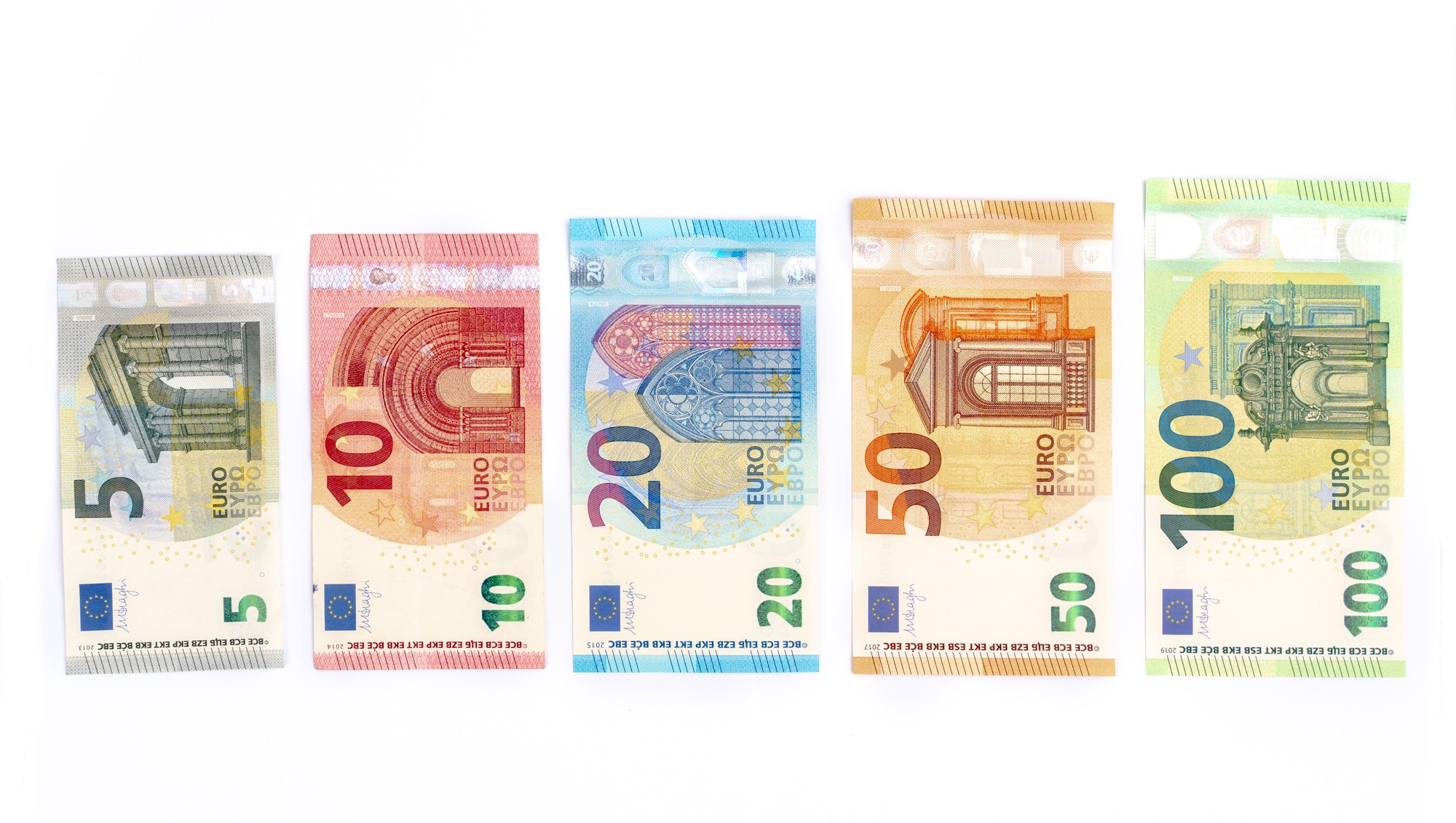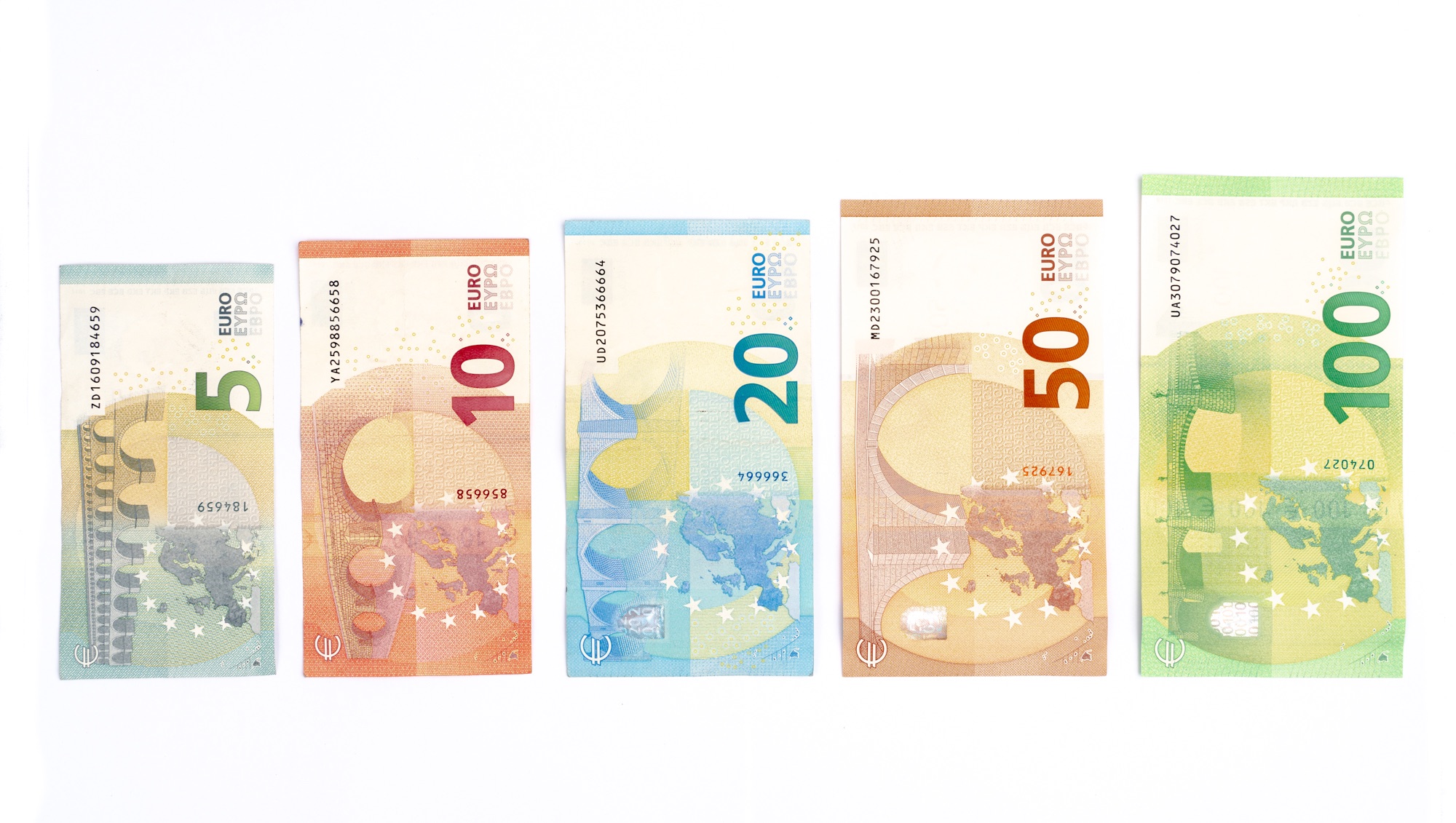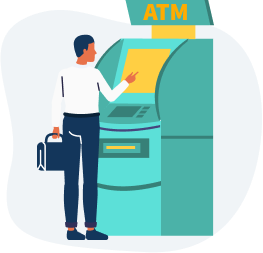Currency in Greece
A Travel Money Guide to Greece
Famous for the Acropolis, Mt Olympus, the white and blue rooftops of Santorini, and cruises through the Greek islands under a dark blue sky, Greece is easily one of our favourite holiday destinations.
And if you’ve worked for this trip, there’s no doubt you’ll want to stretch the savings as far as they’ll go.
What currency does Greece use?
By far, the most widely used currency across all of Greece is the Euro. Interestingly, the currency sign for the euro (€) resembles the Greek letter epsilon (Ɛ). The currency code for the euro is EUR.
Greece was one of the first countries to use the euro, adopting it in 2001 and launching it nationwide on 1 January 2002. The euro replaced the Greek drachma, which officially ended circulation on 28 February 2002.
It is a European monetary unit used by 19 countries in total
Greek Money
One euro makes up the base unit for Greece’s currency. A single euro is divisible by 100 cents.
In Greece, it’s commonplace to see the euro symbol written after the name, such as in 10€.
The euro is issued by the European Central Bank and is one of the most traded currencies on the world’s foreign exchange markets.
Banknote Denominations
The euro banknotes you’ll find in Greece are exactly the same as those used in every eurozone country.
Each note is represented by a different size and colour and comes in the following seven denominations: €5, €10, €20, €50, €100, €200, and €500. Chances are you won’t come across a €500 note and may find it difficult to trade if you do.


Coin Denominations
The euro has eight coin denominations, made up of one cent, two cents, five cents, ten cents, 20 cents, 50 cents, €1, and €2.
Across the eurozone – the collection of countries which use the euro as legal tender – one side of the euro coins is the same, displaying the coin’s value and a map of the European Union.
On the other side, each country has its own unique design. In Greece, the one, two, and five cent euro coins depict Greece’s maritime traditions. The ten, 20, and 50 cent coins depict famous Greeks from modern history.
The €1 coin replicates an ancient drachma, with an owl and an olive branch. The €2 coin depicts an ancient scene with Europa (the mother of King Minos of Crete) and Zeus disguised as a bull.
All euro coins, no matter their country of origin, are accepted in Greece and vice versa.
In Greece, you’ll often catch locals calling the cent coins ‘lepta’, which is an archaic Greek name for sums smaller than the drachma.

Using Your Bank Card in Greece
Bank cards are becoming increasingly easier to use in Greece but that doesn’t mean you should rely on them exclusively during your travels.
Some of the best travel money cards include debit, credit and prepaid cards. International credit and debit cards are widely accepted, as long as they have a four-digit PIN.
It’s important to know about dynamic currency conversion (DCC) when using a bank card abroad. DCC is where the credit card processor, such as a shop or hotel, converts the currency and charges you in your home currency rather than euros.
You’ll typically be asked how you’d like to be charged – in every case, choose the local currency. Otherwise, you may end up paying additional fees for the service, alongside the other bank fees.
Debit Cards
Most people have their own debit card and many places accept them, which makes debit cards convenient for travel.
But you may end up paying multiple fees for that convenience, including potential currency conversion fees and foreign transaction fees.
One of the best travel money cards for Greece is the Wise Travel Card, which doesn’t have purchase, load, or reload fees and offers the same exchange rates as those you see on Google or XE.com.


Credit Cards
Visa and Mastercard are widely accepted across Greece, but beware: traditionally, many Greek restaurants and smaller hotels do not accept credit cards. You may also have difficulty using Diners Club or American Express.
Despite this, credit cards are becoming increasingly popular in Greece, with more and more hotels and shops accepting them. You may have some trouble using a credit card if it doesn’t have a chip and PIN.
Many banks have hidden credit card fees for overseas transactions. You might be looking at fees for currency exchanges, cash advances from ATMs, and foreign ATM withdrawals.
Prepaid Travel Cards
Many people reach for a prepaid travel card without researching their merits and disadvantages.
While you may receive a backup card for emergencies, and you may dodge currency conversion fees the banks typically charge, you could end up paying for other costs, such as reload fees and inactivity fees.
Also check to find out how much you’re charged per overseas ATM withdrawal, as well as the length of time it may take for each reload, especially over weekends and public holidays.
If you still like the idea of locking in the currency, try Revolut and TransferWise debit cards, which include the option to load a prepaid amount in your preferred currency.

How to Exchange Currency in Greece
Cash is still a popular payment method in Greece and you’ll always be thankful to have a euros on you at any time.
While you’ll have no trouble exchanging currency in Greece, you may want to think twice about it if you’re out for the best rates, as many exchange bureaus provide high commissions and poor rates.
The three most popular ways to exchange currency in Greece including using ATMs, currency exchange offices, or travellers cheques.

Greek Bank ATMs
There are ATMs easily available in almost every city and large town in Greece. Given the huge tourism industry, these machines tend to cater to a wide range of cards but they must have a four-digit numeric PIN.
Some of the most common bank ATMs you’ll find include Commercial Bank (Emboriki Trapeza), National Bank (Ethiniki Trapeza), Credit Bank (Trapeza Pisteos), and AlphaBank.
Collectively, these ATMs accept cards with PLUS, Visa, Cirrus, and Mastercard logos. American Express and Diners Club cards are less commonly accepted.
Smaller towns and islands may only have one ATM, with no guarantee that it will accept your card. Often this ATM belongs to Euronet, a company which charges an exorbitant €3.95 fee and provides substantially poorer exchange rates.
Even in bigger towns during peak tourist season, ATMs can often run out of cash on the weekends. They’re often not restocked till midweek so it’s best to ensure you pick up more cash in the larger commercial centres if you’re running low.
Searching for an ATM? In Greece, the machines are called Ei Ti Em or just mihanima.
Before using ATMs, check up on the fees you may incur both from the ATM bank and from your own bank. These fees might include foreign ATM withdrawal fees, currency conversion fees, and more.
Greek Currency Exchange Outlets
Greece is a tourist hotspot, so there are plenty of currency exchange shops around. That said, the more touristy the area you’re in, the higher the commissions can be.
In some tourist resorts, consider changing money at the post office, where you might get lower commissions than those provided at banks and exchange bureaus.
We recommend avoiding the airports as they typically offer some of the worst exchange rates and high commissions too – expect to spend about €6 in commissions at Athens airport exchange outlets.
Greece also has automated foreign currency exchange machines that accept Australia and US dollars, Japanese yen, and all major European currencies. Though convenient, they have hefty commissions.


Travellers Cheques
As a major tourist destination, Greece is one of the few places where the travellers cheques are still commonly accepted. Most shops and banks in tourist areas accept travellers cheques of smaller denominations. Larger bills may be treated with suspicion.
Few places outside the well-trodden tourist path will accept travellers cheques, so your best option is to exchange cheques for cash at a bank.
These days, when pitted up against plastic money and currency exchanges, travellers cheques seem more hassle than they’re worth.
Buying Greek Currency Before You Go
There’s so much to see and do in Greece. Why waste your time searching for and organising currency? Do it at home before you fly and save yourself any hassles.
You have three options to organise your currency before you leave home:
- Buying euros online to be delivered or for you to pick up in-store.
- Swapping AUD for EUR at a currency exchange store.
- Buying euros at the airport.
Try S Money or a similar online currency exchange store to get rates that reflect the comparisons you see on XE or Google.
If you choose online delivery or in-store pickup, check the processing time. Some exchange companies with online options suggest you allow between two and five days to process currency.
Prefer in-store currency exchange? Head to the CBD of your nearest city for the most competitive exchange rates; suburban bureau de change outlets tend to have poorer rates and fees.
Currency exchange counters in Australia’s airports are infamous for their atrocious exchange rates. Avoid them if you can.
What Will the Greek Euro Buy Me?
Budgeting for your trip gives you a good idea of how much you may need for the length of your stay. This might keep you accountable, help you stretch your savings, or help you avoid having to convert currency back into dollars at the end of your trip.
To help you cost out the trip, here are some of the average costs of items in Greece:

€60-150 per night
A double room in a mid-range hotel

€3.50
A traditional pitta gyros

€2.50-4
A bottle of beer

€2-12
Admission to a museum or famous site

€12-20 per meal
Dinner
Leftover Euros at the End of Your Trip? What to Do with That Unused Cash

It’s annoying returning from a trip with a wad of foreign cash but there are plenty of ways to dispose of these unwanted coins and notes:
- Your airline might distribute envelopes for currency collection to donate to charities (check out Qantas’s Change for Good program with UNICEF).
- Australian international airports often have collection boxes for unwanted currency, which is donated to charity.
- Drop off your currency at any branch of the Commonwealth Bank of Australia, which then gives every cent to UNICEF.
- Change your Greek currency either at the airport or, better yet, with a money changer in the city.
- Why not hold onto those euros for a friend just heading off? It’ll be a lovely surprise and going away gift for them!
- Keep your money for later trips to Europe. The euro is the official legal currency of 19 eurozone countries and accepted by many more.
7 Travel Money Tips for Trips to Greece
Many tourists waste money through not finding the best ways to exchange their currency. To help you avoid this quandary, here are a few practical tips to help you get the most bang for your … euros:
- Avoid the airports! Currency exchange bureaus at the airport charge epic fees. If you like a good deal – or even just a reasonable one – avoid these at all costs.
- Only carry what you need – It can be expensive to change euros back into AUDs so only take what you think you’ll spend. Not only this – nobody likes to tuck wads of notes into their socks and toiletries for safekeeping on longer journeys.
- Ask for a mix of denominations – Make it easy on yourself and the vendors by getting a mix of smaller notes. Spanish taxis are only obliged to change you up to €20 and some shops and restaurants refuse €100 notes.
- Check your exchange rate – Google and XE.com are the standard market exchange rate but you’ll notice how wildly bank and currency exchanges can vary their rates. Try to get as close to the market rate as possible.
- Look out for hidden fees – The bane of our (financial) existence, hidden fees will often make a huge difference to the cost of your holiday. Be particularly wary of hidden bank fees for overseas card usage.
- The right card makes all the difference – Having a card is convenient but it can take a hit to the bank account if you have the wrong card. Research and arm yourself with the best card for travel for big savings.
- Mix it up! Many travellers only use their credit card while some only think about cash. But the best option depends on your situation. Save the card for huge purchases such as hotels and car hire and reserve your cash for smaller wins – transport, attractions, or meals out.


